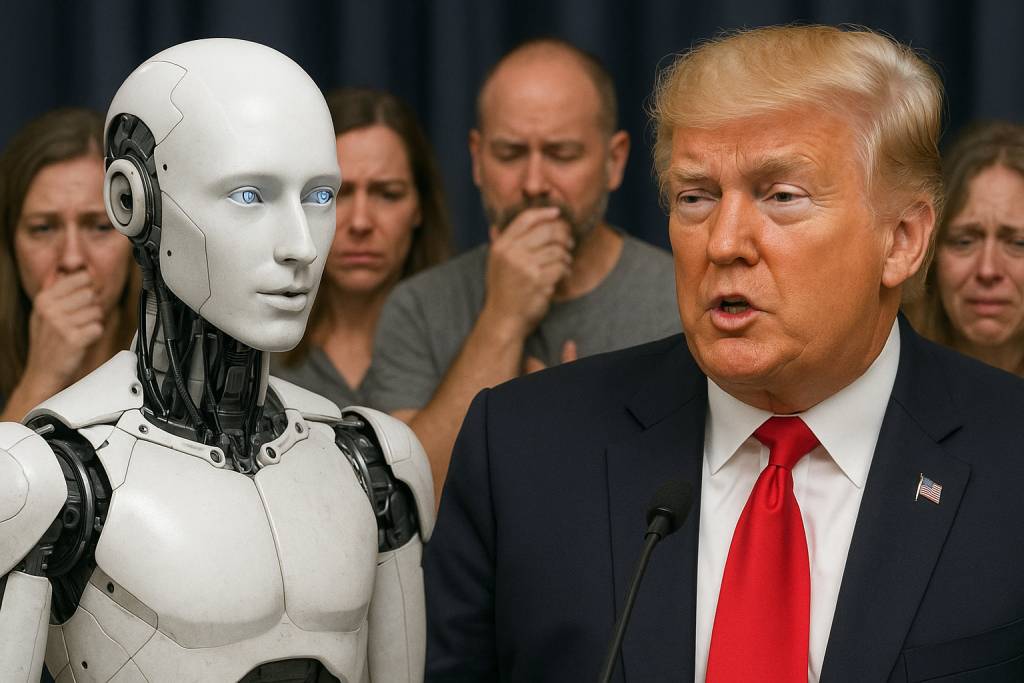Making America groan again
THE FREELANCE has reported on a UK government minister seeking advice from ChatGPT on how to expand the use and reach and income potential of ChatGPT; and on suspicions that a so-called artificial intelligence may have sketched out the Trump tariffs in April - or at least plagiarised an economist who Elon Musk called “a moron”.

A photorealistic image of an artificial intelligence giving really dangerous public health advice to a president who has orange skin, with people who have been affected by that advice behind them - as rendered by ChatGPT's DALL-E feature. It refused to produce images for other prompts that it summarised as “AI gives bad advice” or as portraying “victims”
Now a major US administration health policy document has emerged - with robot fingerprints all over it.
As the Washington Post tells it, it was the news website NOTUS that first listed non-existent sources cited in a report entitled Make America Healthy Again, produced by a commission chaired by Robert F. Kennedy Jr.
One researcher whose name is cited is epidemiologist Katherine Keyes. “The paper cited is not a real paper that I or my colleagues were involved with,” she told NOTUS. “We’ve certainly done research on this topic, but did not publish a paper in JAMA Pediatrics on this topic with that co-author group, or with that title.” This follows a pattern of confabulating AIs attributing non-existent papers to real and relevant authors, as the Freelance noted two years ago.
The smoking - if very geeky - gun, though, is the observation by the Washington Post of strings of characters such as contentReference[oaicite:1] appended to web links in the document. Products of the OpenAI corporation, such as ChatGPT, do this.
US Department of Health and Human Services spokesperson Andrew Nixon told NOTUS that “minor citation and formatting errors have been corrected, but the substance of the MAHA report remains the same...” Someone in the White House continued editing the references into the night.
The report itself is dangerous, particularly for its hostility to vaccines. In the Los Angeles Times, business columnist Michael Hiltzik opined that “a sloppier, more disingenuous government report would be hard to imagine.”
Since February the LA Times has, in order to demonstrate “balance”, added to such opinion pieces AI-generated “perspectives”. This AI didn't do very well in defending the other AI: its riposte includes the non sequitur “Proponents defend the focus on vaccine safety, citing concerns about increased prescriptions for antidepressants and antipsychotics, and assert that parental skepticism justifies reevaluating vaccine guidelines.”
 Resembling a robot recession did 'AI' crash the markets?
Resembling a robot recession did 'AI' crash the markets?
 'Artificial Intelligence' our coverage to date
'Artificial Intelligence' our coverage to date
![[Freelance]](../gif/fl3H.png)